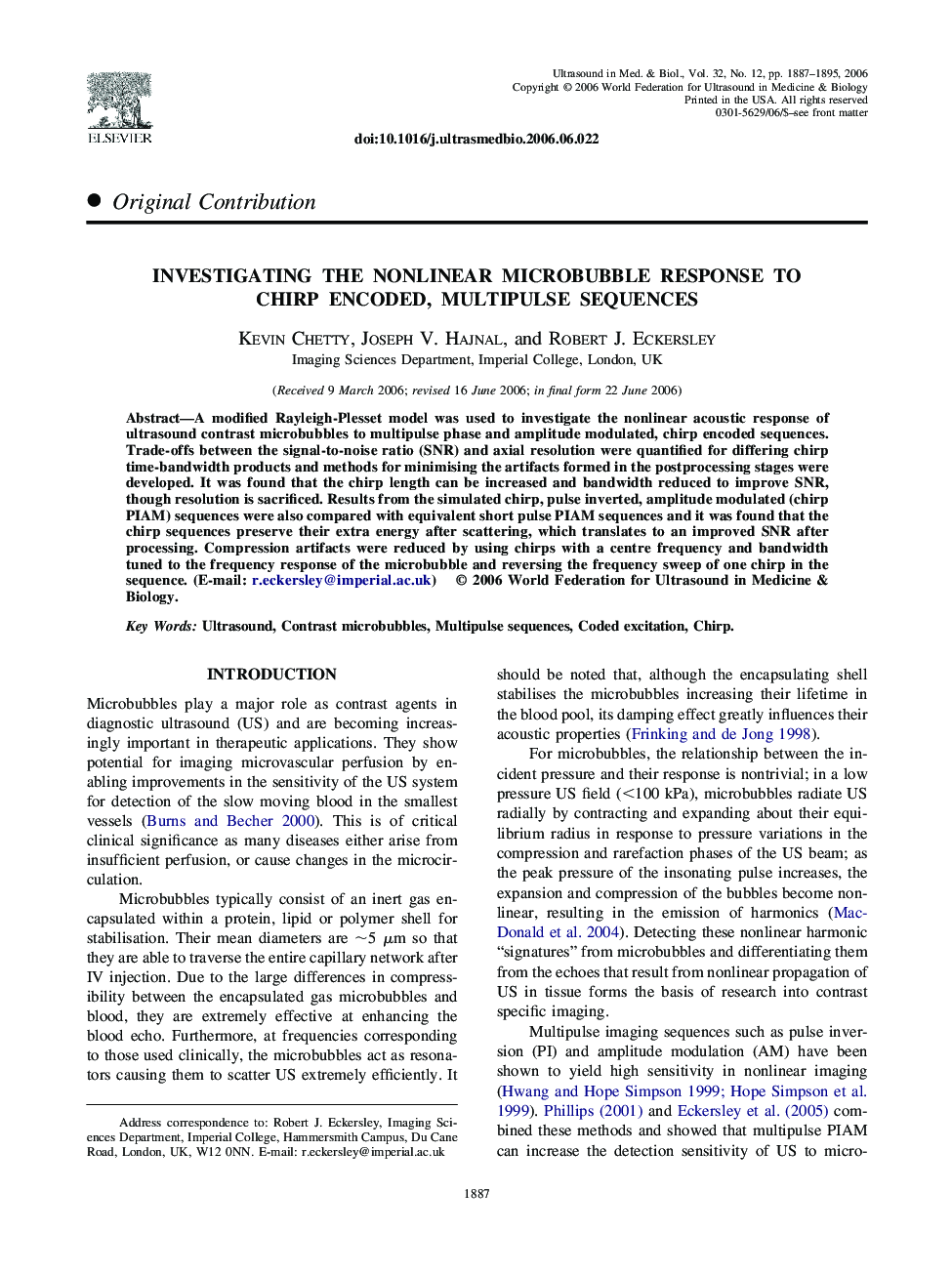| Article ID | Journal | Published Year | Pages | File Type |
|---|---|---|---|---|
| 1761366 | Ultrasound in Medicine & Biology | 2006 | 9 Pages |
Abstract
A modified Rayleigh-Plesset model was used to investigate the nonlinear acoustic response of ultrasound contrast microbubbles to multipulse phase and amplitude modulated, chirp encoded sequences. Trade-offs between the signal-to-noise ratio (SNR) and axial resolution were quantified for differing chirp time-bandwidth products and methods for minimising the artifacts formed in the postprocessing stages were developed. It was found that the chirp length can be increased and bandwidth reduced to improve SNR, though resolution is sacrificed. Results from the simulated chirp, pulse inverted, amplitude modulated (chirp PIAM) sequences were also compared with equivalent short pulse PIAM sequences and it was found that the chirp sequences preserve their extra energy after scattering, which translates to an improved SNR after processing. Compression artifacts were reduced by using chirps with a centre frequency and bandwidth tuned to the frequency response of the microbubble and reversing the frequency sweep of one chirp in the sequence. (E-mail: r.eckersley@imperial.ac.uk)
Related Topics
Physical Sciences and Engineering
Physics and Astronomy
Acoustics and Ultrasonics
Authors
Kevin Chetty, Joseph V. Hajnal, Robert J. Eckersley,
